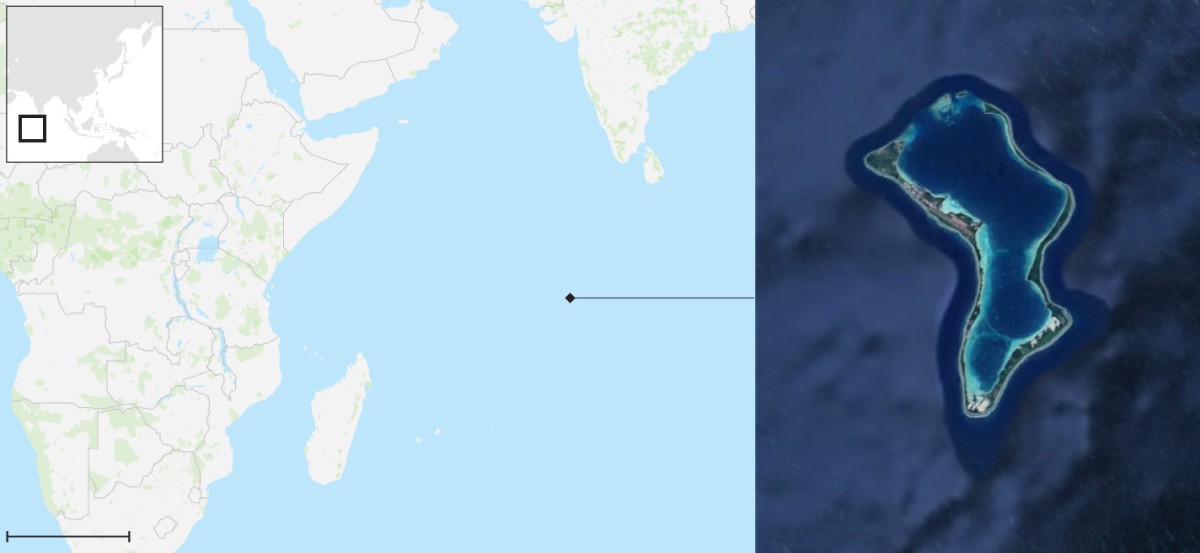2157 Views
Britain's £30 Billion Betrayal: The Hidden Price of Surrendering the Chagos Islands
The Chagos Archipelago, a strategically significant group of islands in the Indian Ocean, has long been a point of contention between the United Kingdom and Mauritius. On May 22, 2025, UK Prime Minister Keir Starmer announced a historic agreement to transfer sovereignty of the islands to Mauritius—an event described by many as a major turning point in British foreign policy. While the move appears to align with the UK's global commitments, it has triggered heated debates over its economic and political consequences. Some analysts argue it may signal a deeper geopolitical maneuver by the UK to preserve its image as a global power.
The Real Cost: £3.4 Billion or a £30 Billion Deception?
The British government officially placed the cost of the Chagos agreement at £3.4 billion, a figure based on net present value and adjusted for inflation. However, critics argue that the real cost could balloon to £30 billion when including 99-year lease payments, infrastructure investments in Mauritius, and other long-term financial obligations. This discrepancy has led to accusations that Prime Minister Starmer deliberately misled the public. Several media outlets and opposition leaders have dubbed it "The Prime Minister’s Lie."
Domestic Backlash: Foreign Policy over Public Needs?
The potential £30 billion expenditure has sparked outrage, especially given the UK’s ongoing economic pressures—public spending cuts, growing social dissatisfaction, and rising cost-of-living challenges. Opponents argue that allocating such a vast sum to a foreign territory at a time of pressing domestic needs is deeply irresponsible. Prominent political figures like Nigel Farage and Conservative Party leader Kemi Badenoch have criticized Starmer for prioritizing foreign affairs over domestic welfare.
National Security Concerns: Is Britain Giving China an Opening?
The political fallout extends beyond economics. At home, opposition parties have condemned the agreement. The Conservative Party has branded it "an act of national self-harm," warning that Mauritius’s close ties to China could pave the way for Chinese influence in the region and threaten the security of the Diego Garcia military base. The Reform UK party echoed these concerns, arguing the move needlessly compromises British strategic interests in favor of Beijing. Starmer, however, defended the agreement, insisting it aligns with the UK and US security strategies and that vital interests were fully considered.
Redrawing the Indo-Pacific Map: Britain’s Diplomatic Repositioning
Viewed from another angle, the deal is part of Britain’s broader effort to redefine its foreign policy presence in the Indo-Pacific region. The UK aims to maintain military relevance in this critical area while also honoring international legal frameworks—specifically, the International Court of Justice’s advisory opinion recognizing Mauritius's sovereignty over the Chagos Islands.
Global Reactions: Strategic Allies and Strategic Worries
Internationally, the deal has been welcomed by key allies. The United States has supported the agreement and reaffirmed the strategic importance of Diego Garcia. US Secretary of State Marco Rubio described the base as “vital to regional and global security” and highlighted its role in deterring threats from nations like Iran. Nevertheless, growing concerns remain about potential Chinese infiltration through Mauritius, given the island nation's strong political and economic ties with Beijing. To address these fears, the UK has implemented safeguards, including a 24-nautical-mile exclusion zone around Diego Garcia and veto power over foreign access to other islands.
Justice for the Chagossians? Still a Divided Story
The agreement also carries historical weight for the Chagossian people, who were forcibly removed from their homeland in the 1960s and 1970s to make way for a military base. Some view the sovereignty transfer as a step toward long-overdue justice, while others fear losing their remaining rights and influence under Mauritian rule.
Colonial Closure or Strategic Realignment?
While the handover of the Chagos Archipelago may symbolically close a colonial chapter and align with Britain’s international obligations, in reality it reflects a strategic realignment of military and political ties with the United States and a repositioning of Britain’s Indo-Pacific policy. The move may help sustain the UK's image as a global power—but it comes with significant financial costs and domestic political risks. The real challenge for Starmer’s government will be to balance international cooperation with the growing demands and frustrations of the British public.
*Translated by Ashraf Hemmati from the original Persian article written by Amin Mahdavi

Comment
Post a comment for this article